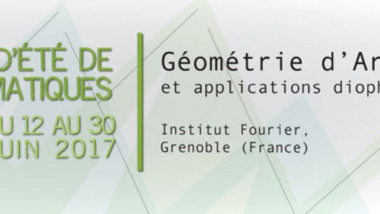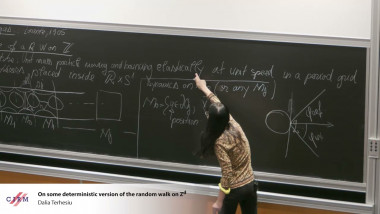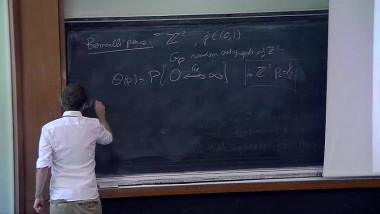Condensation of zero-range processes
Appears in collection : Interacting particle systems and related fields / Systèmes de particules en interaction et domaines connexes
A zero-range process on a finite set of sites S is a type of interacting particle system where particles jump from a site x, occupied by k particles, to a site y at rate g(k)r(x, y). In [2], we studied such processes under the assumptions that S is fixed, g is decreasing and the total number of particle tends to infinity. These conditions give rise to a condensation phenomenon where the majority of particles accumulate at a single site to form a condensate. We showed that if r is reversible, then the position of the condensate evolves as a Markov chain on S in a suitable scaling limit. To reach this result, we first developed a general framework in [1] to investigate a broader question: Under what conditions can identifying states in a Markov process preserve Markovian behavior in the scaling limit of the quotient process? In subsequent works, we refined these tools and applied them to other models (see, for example, [3, 4, 5, 6, 7]). In this talk, I will outline the main ideas behind our approach to these problems and present some open questions that remain to be explored.
















